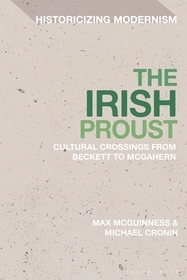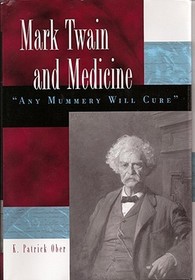
-
13% KEDVEZMÉNY?
- A kedvezmény csak az 'Értesítés a kedvenc témákról' hírlevelünk címzettjeinek rendeléseire érvényes.
- Kiadói listaár GBP 85.00
-
40 608 Ft (38 675 Ft + 5% áfa)
Az ár azért becsült, mert a rendelés pillanatában nem lehet pontosan tudni, hogy a beérkezéskor milyen lesz a forint árfolyama az adott termék eredeti devizájához képest. Ha a forint romlana, kissé többet, ha javulna, kissé kevesebbet kell majd fizetnie.
- Kedvezmény(ek) 13% (cc. 5 279 Ft off)
- Kedvezményes ár 35 330 Ft (33 647 Ft + 5% áfa)
Iratkozzon fel most és részesüljön kedvezőbb árainkból!
Feliratkozom
40 608 Ft

Beszerezhetőség
Még nem jelent meg, de rendelhető. A megjelenéstől számított néhány héten belül megérkezik.
Why don't you give exact delivery time?
A beszerzés időigényét az eddigi tapasztalatokra alapozva adjuk meg. Azért becsült, mert a terméket külföldről hozzuk be, így a kiadó kiszolgálásának pillanatnyi gyorsaságától is függ. A megadottnál gyorsabb és lassabb szállítás is elképzelhető, de mindent megteszünk, hogy Ön a lehető leghamarabb jusson hozzá a termékhez.
A termék adatai:
- Kiadó Bloomsbury Publishing (UK)
- Megjelenés dátuma 2025. december 11.
- Kötetek száma Hardback
- ISBN 9781350499348
- Kötéstípus Keménykötés
- Terjedelem224 oldal
- Méret 234x156 mm
- Nyelv angol 700
Kategóriák
Hosszú leírás:
This collection of essays is the first book devoted to exploring Marcel Proust's influence on Irish literature and Irish themes within his work. Featuring contributions from eleven scholars of French and Irish studies, The Irish Proust reveals a surprising textual dimension of Proust's novel and traces the enduring legacy of his work throughout modern Irish letters.
Proust's work, which was banned in Ireland during the 1940s and 1950s, occupies an essential position within the Irish literary and cultural imaginary. From Samuel Beckett and Elizabeth Bowen to Brendan Behan and John McGahern, ï¿1⁄2 la recherche du temps perdu has been a touchstone for generations of Irish writers.
Including bold new readings of Proust's presence within the writings of Beckett, Bowen, Behan, McGahern, and Mary Devenport O'Neill, The Irish Proust draws on a wide range of archival sources and sheds new light on the cosmopolitan, modernist literary culture that emerged in post-independence Ireland despite a hostile official climate.
Tartalomjegyzék:
Notes on contributors
Acknowledgements
Abbreviations
Foreword: The Man Who Built Ireland's Paris Embassy:
Henri, Marquis de Breteuil-Monarchist, Diarist, and Inspiration
for Marcel Proust's 'Hannibal de Brï¿1⁄2autï¿1⁄2'
Niall Burgess (Ambassador of Ireland to France and Monaco)
Introduction
Max McGuinness (Trinity College Dublin, Ireland)and Michael Cronin (Trinity College Dublin, Ireland)
Part 1: Irish Themes in Proust
1. In Search of a Gaelic Proust
Max McGuinness (Trinity College Dublin, Ireland)
2. Proust and Wilde
Elisabeth Ladenson (Columbia University, USA)
3. Revivalist Proust
Barry McCrea (University of Notre Dame, USA)
4. The Metempsychotic Room: Proust, His Siblings, and His Avatars
Patrick O'Donovan (University College Cork, Ireland)
Part 2: Proust in Ireland
5. Amphibian Proust: Aesthetic Renewal and the Trinity College Dublin
French Department in Post-Independence Ireland
Michael Cronin (Trinity College Dublin, Ireland)
6. Mary Devenport O'Neill's Poetic Reception of Marcel Proust
Grï¿1⁄2inne Condon (Independent scholar)
7. Proust Revisited: The Legacy of Marcel Proust in Brendan Behan's Bridewell
Deirdre McMahon (Independent scholar)
8. Proust, McGahern, and Memoir: the Dï¿1⁄2jï¿1⁄2 Lu
Richard Robinson (Swansea University, Wales)
Part 3: Irish Proustians in Exile
9. Proust, Beckett, and the 'Abominable Edition of the Nouvelle Revue Franï¿1⁄2aise'
Nathalie Mauriac Dyer (CNRS-ï¿1⁄2cole normale supï¿1⁄2rieure, France)
Translated from the French by Max McGuinness (Trinity College Dublin, Ireland)
10. Bowen after Proust
Isabelle Serï¿1⁄2a (Universitï¿1⁄2 de Toulouse, France)
Translated from the French by Michael Cronin (Trinity College Dublin, Ireland) and Max McGuinness (Trinity College Dublin, Ireland)
11. 'A Very Dangerous Influence': Elizabeth Bowen and Marcel Proust
Heather Ingman (Trinity College Dublin, Ireland)





